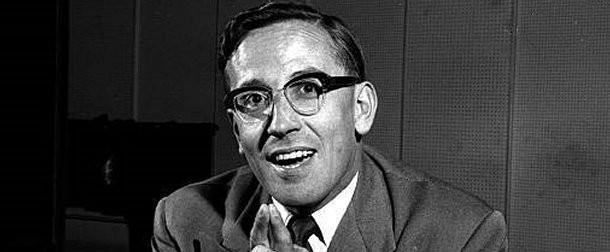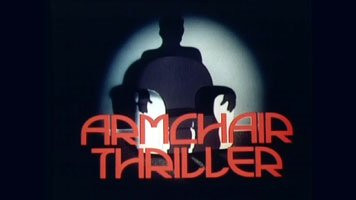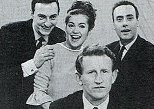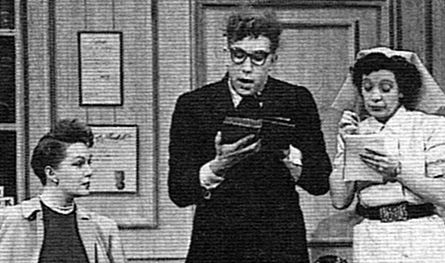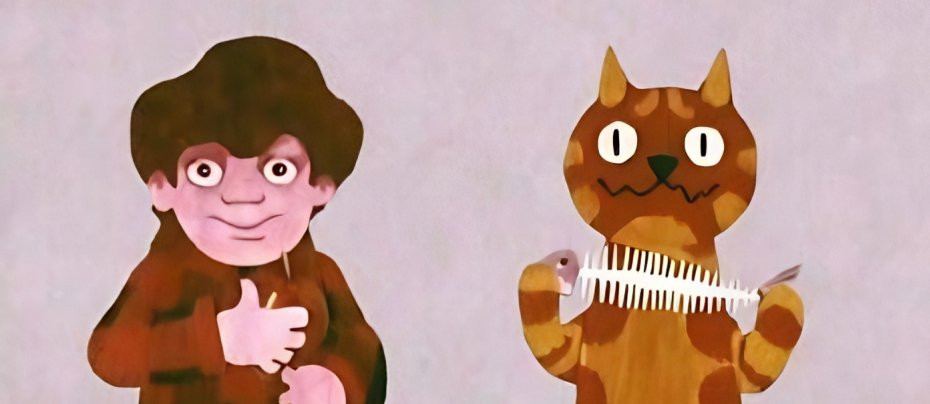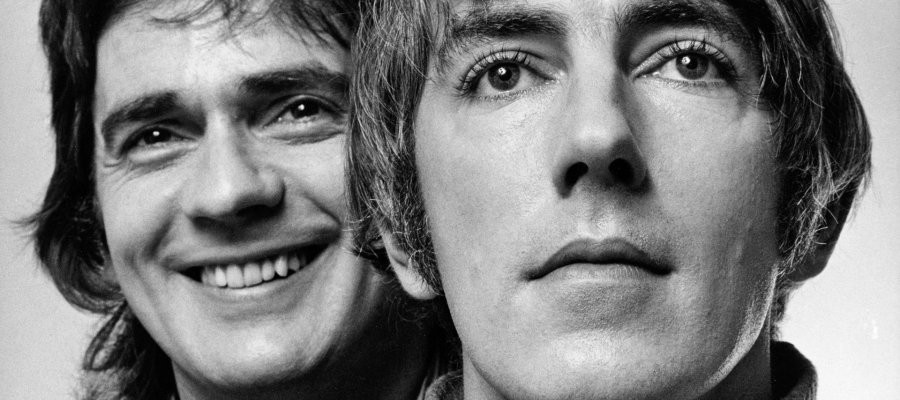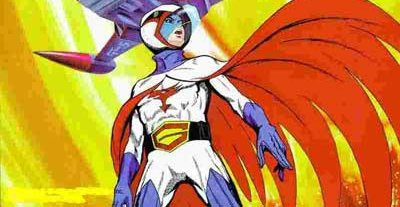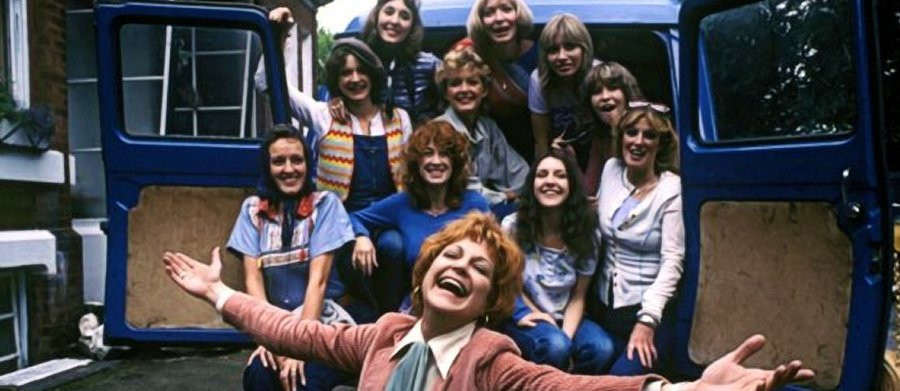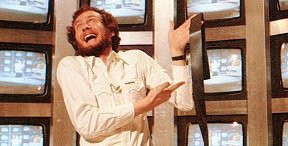
The Kenny Everett Video Show
1978 - United KingdomAt a time when the British televisual comedy scene was happily basking in an entertainingly rich suburban rut of crowd-pleasingly play-it-safe comedy, one man arose. A man whose innate, highly individualistic sense of humour coupled with his total lack of anything remotely resembling recognised good taste took the comedic sensibilities of the nation by the scruff of their collective necks and proceeded to shake them until they either laughed out loud or penned "Disgusted of...fill in your location here" letters to Points of View, and all post-boxes pointing towards Fleet Street. That man’s name was Kenny Everett, and he arrived brandishing a big spangly new TV toy to dazzle and amaze us with. A toy called...his Video Show.
Kenny Everett, or 'Cuddly Ken' as we affectionately came to know him, was born Maurice Cole on 25th December 1944 in Liverpool, and was first heard on the airwaves of British radio when he joined pirate broadcaster Radio London in 1964, where he remained (apart from a brief stint on Radio Luxembourg) until 1967, when he joined the BBC's new pop station, Radio One, where, through his creative use of sound effects and Goonish of-the-wall humour, he continued to almost single-handedly revolutionise pop radio presentation in the 1960s and 1970s.
The Kenny Everett Video Show was by no means his first attempt to transfer his particular brand of quick-fire zany humour from radio to television, but it was beyond a doubt his most successful. Arguably Everett's sense of humour was so far advanced that for it to have the biggest impact on TV he actually had to wait for video technology to catch up with him! By 1978 it mercifully had, and Everett, in only the way that Everett could, grasped it with both hands, turned it inside out, upside down and on its head and used it in a way that no one had before to produce truly groundbreaking comedy of the highest order. Mainly the show centred round him, filmed in front of a bank of TV monitors with a minimal audience comprised of his own production crew who were encouraged to break their silence and laugh.
Cuddly Ken with his irrepressible personality introduced an assortment of quick-fire sketches that predicted the attention deficit disorder mode of television by a good two decades, while still effortlessly managing to maintain a comedy quotient of the scatalogically bizarre highest order.
Together with co-writers Barry Cryer and Ray Cameron, Everett reinvented himself as the leather-clad greaser Sid Snot, the outrageously conceited womanising Frenchman Marcel Wave, the punk Gizzard Puke, the huge-handed gospel minister Brother Lee Love, Angry of Mayfair (seemingly a respectably dressed city gent who faced the camera to complain about all of societies ills until he turned to walk away -only to reveal that he was wearing knickers, stockings and suspenders), and the wonderfully named Cupid Stunt, a Dolly Parton caricature of similarly mountainous décolletage. Each show also featured Everett's buxom assistant Cleo Rocas (as Miss Whiplash) and the scantily dressed dance band Hot Gossip, who would girate their 'naughty bits' to a newly released pop song.
Guest musical acts were also encouraged to join in the odd sketch or two. And sometimes groups unwittingly took part in his sketches, as in one of Everett's most celebrated video gags, in which he dressed up in a white suit, donned long-haired wigs, false teeth and an impossibly false suntan to play all three Bee Gees brothers. Interviewed by Everett, these 'Bee Gees' answered all his questions musically, with lines from their songs:
Everett: "How do you sell so many records?"
Bee Gees: "Cos were living in a world of fools..."

One character from his Capitol Radio show was transferred to television courtesy of the animators of Cosgrove Hall Productions. Captain Kremmen followed the same five-minute radio format in which the eponymous space captain, his busty cadet Carla, and the brilliant scientist Gitfinger (all voiced by Everett) fight to protect the Universe from the Krells (a type of evil alien blancmange). This was one cartoon that was definitely not for the kids.
Carla: "Captain, can I use your dictaphone?"
Kremmen: "No Carla, use your finger like everyone else!"
The Kremmen episodes proved popular enough for Cosgrove Hall to produce Kremmen - The Movie, a half hour b-movie for cinema distribution in 1980.
Viewers at the time could opt to either love it or loathe it, but never remain indifferent to it. It raised the moralistic hackles of the clean-up TV brigade but won a BAFTA for Best Light Entertainment Series in 1979. Gaudy, anarchic, irreverent, or just plain hilarious, the Kenny Everett Video Show reflected the very core personality of the man himself. It was all at once ahead of its time and yet very much a part of its time. It was paradoxical and it was constantly inventive...it was also very, very...VERY funny, which at the end of the day, was exactly what Kenny himself wanted it to be. And it was all done "in the best possible taste!"
Trivia:
Kenny Everett's mischievous humour often got him into trouble and several times this led to a termination of his employment. This first happened in his Radio London days and he briefly went to Radio Luxembourg, but returned to London fairly quickly. In 1970 he fell foul of BBC Radio executives and found himself out of work once again. He decided to take his talents to Granada Television (having already made appearances in the Granada series Nice Time) who immediately gave him his own starring vehicle, The Kenny Everett Explosion. This was followed (very quickly) by two series for LWT, Making Whoopee and Ev.
After 35 editions of The Kenny Everett Video Show for Thames TV, Kenny Everett returned to the BBC to make 44 episodes of The Kenny Everett Television Show. The format was exactly the same and this review encompasses both series.
In 1985 many of Kenny's fans were surprised to learn that Kenny, after years of marriage, decided to announce that he was gay. But even in those not-quite liberated times, the announcent did nothing to diminish his popularity. However, just four years later Kenny made an announcement that did shake his fans. He admitted that he had contracted the HIV virus and when he died, six years later on 4th April 1995 of AIDS related complications, British comedy mourned the loss of one of it's truly unique comedic genuises.
Seen this show? How do you rate it?
Seen this show? How do you rate it?
Published on December 28th, 2018. Written by Laurence Marcus & SRH (3 April 2005) for Television Heaven.


